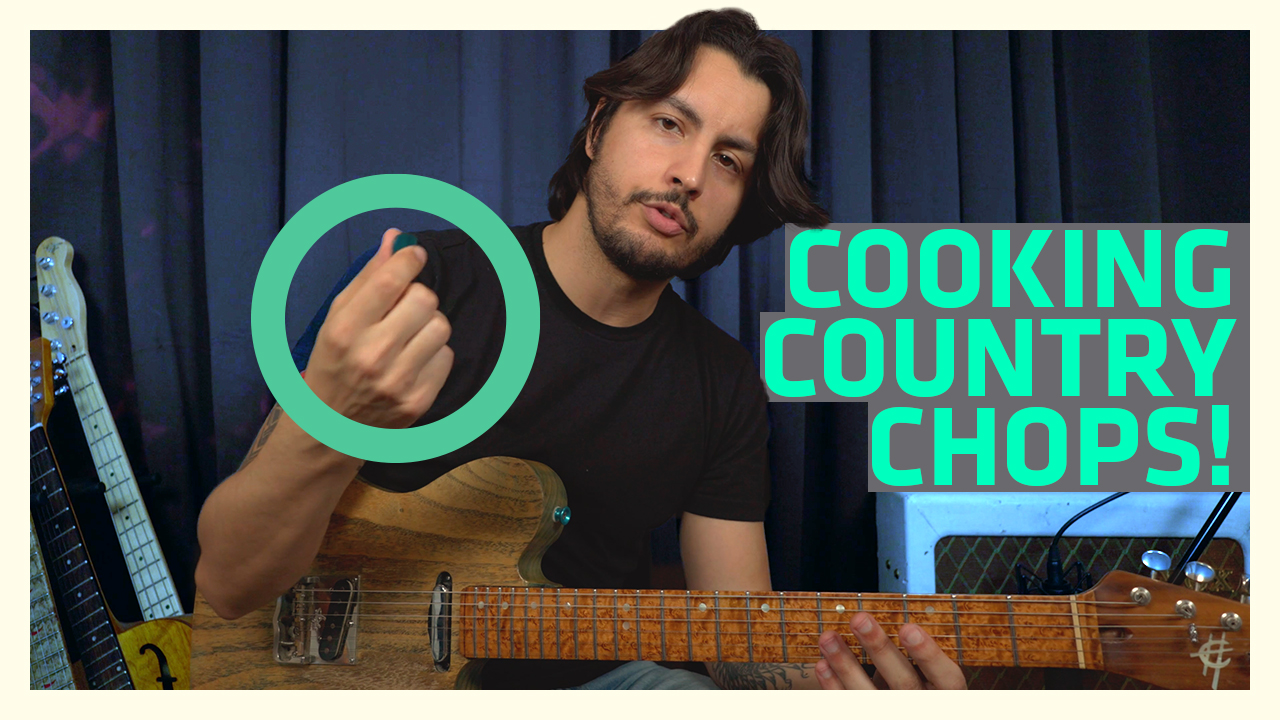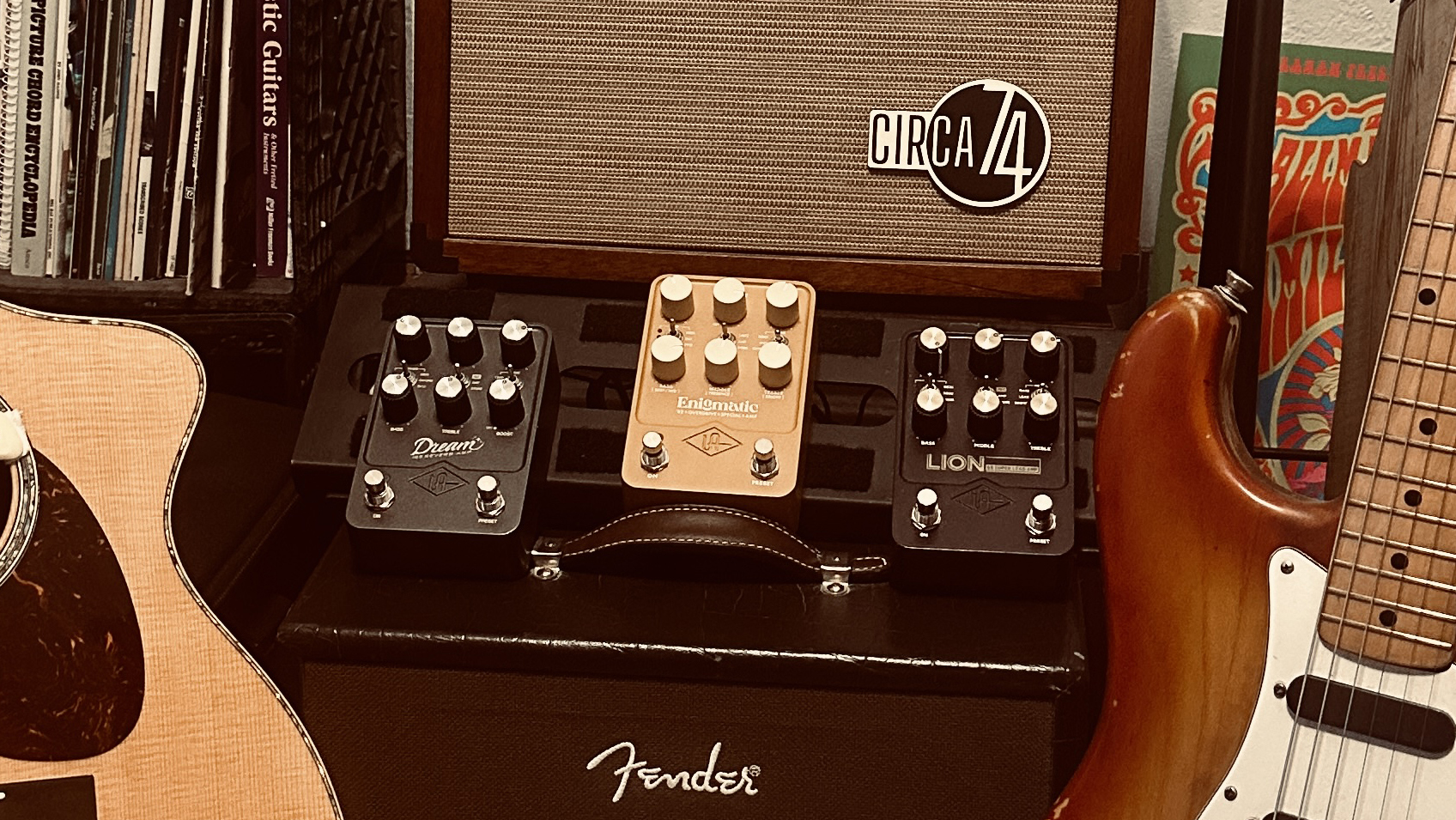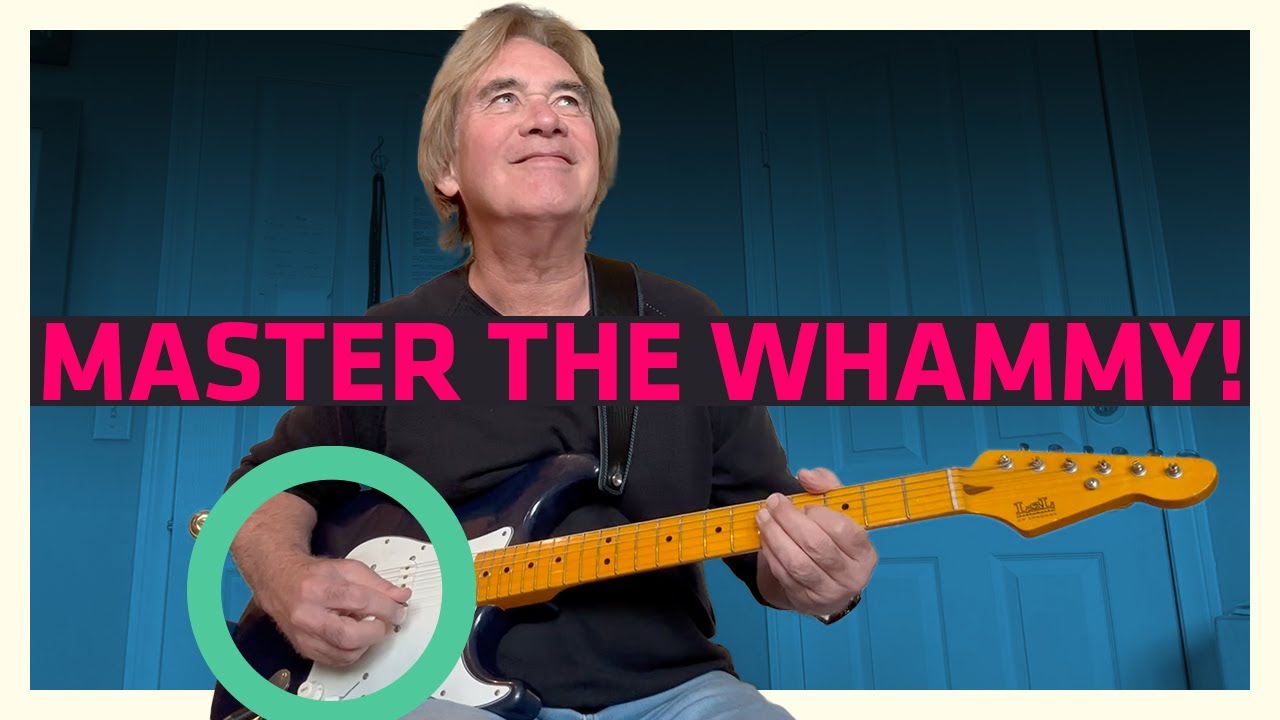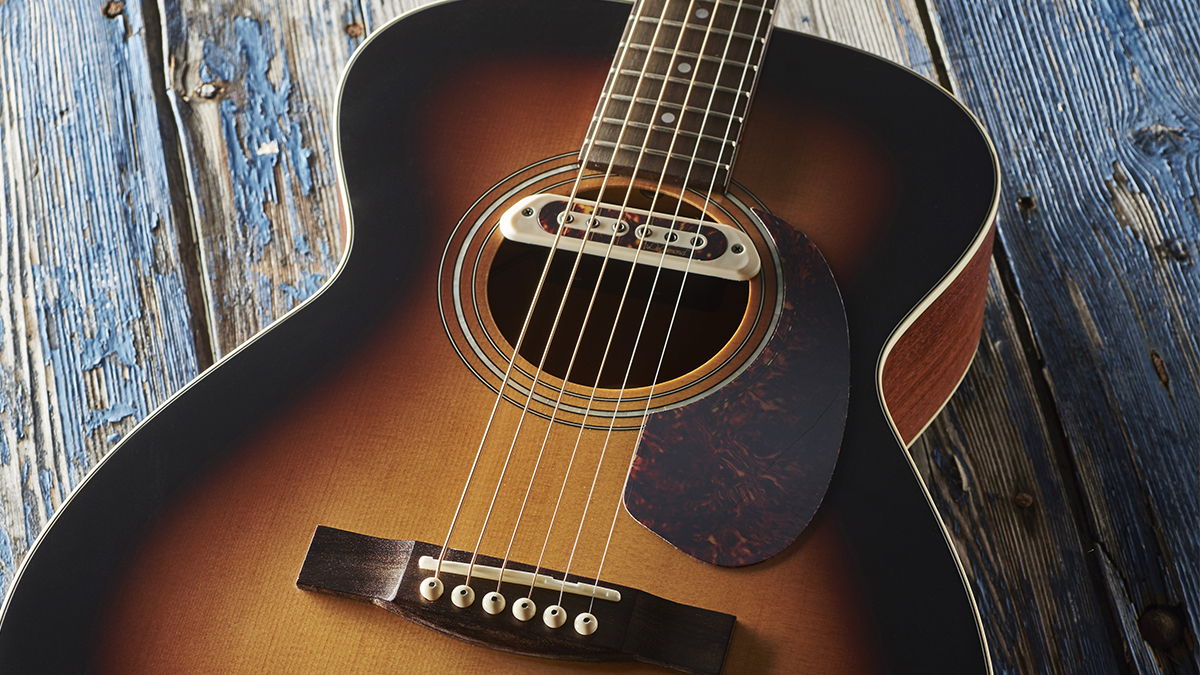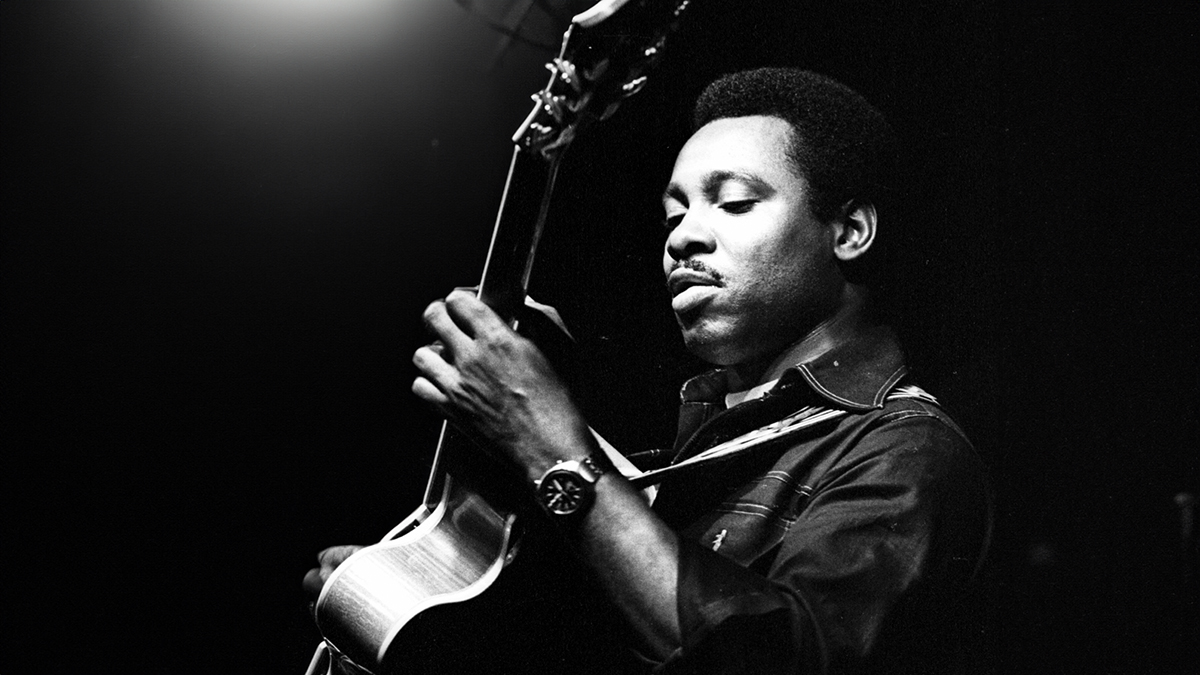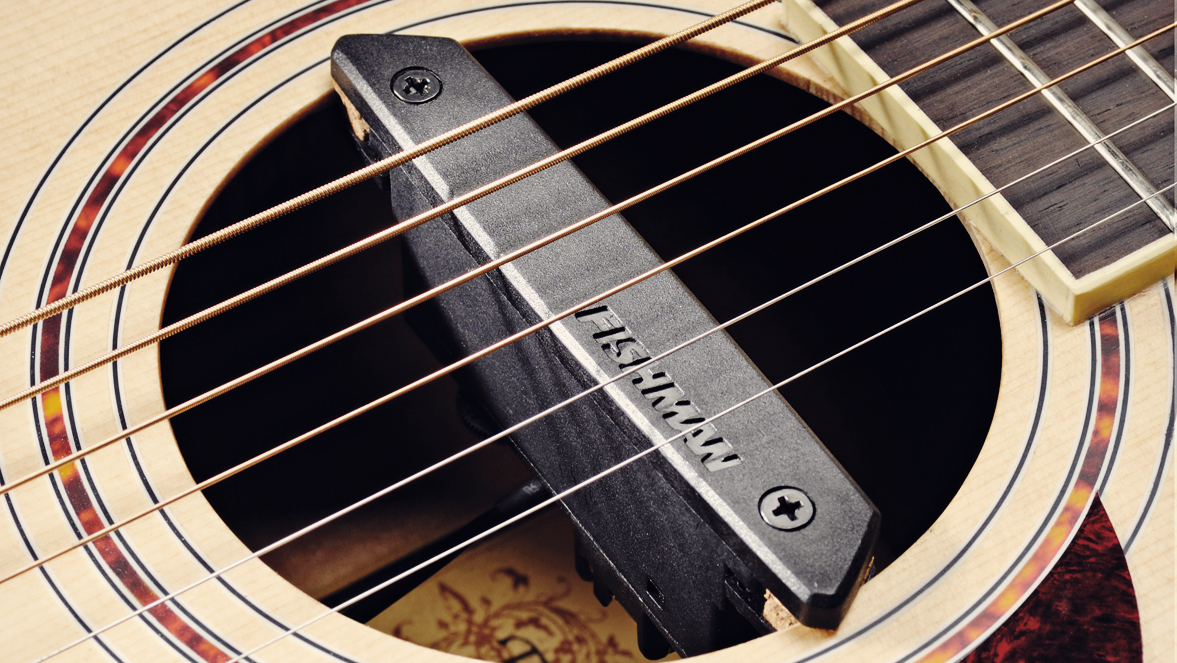
You might think that master guitarist Steve Morse never gets in a rut with his playing. But guess what? He’s just like the rest of us in that regard. However, being that he’s Steve Morse, he’s figured out some ways to dig himself out of any kind of hole he finds himself in.
“I’ve found that changing my perspective always helps me,” Morse says. “One way I do that is by imposing limits on myself. We tend to gravitate toward choices that are easy on the guitar, and because of that we wind up playing a certain way.
“Let’s say you’re playing too many box patterns,” he suggests. “What you can do is say to yourself, ‘I’m only going to solo on the D and G strings.’ To make an octave phrase, you’re going to have to move your left hand. By doing that, you’ll play in a more linear manner. It’s a cool trick.”
He laughs. “It sounds counterintuitive,” he admits, “but by taking away options you’ve opened yourself up to playing in a way you never would before.”
Morse reveals another method that works in a similar manner. “Let’s say you’re playing a familiar shape with your left hand,” he says. “Tell yourself, ‘I can play on any string, but I can only use my third and fourth finger.’ Now you’re going to be forced to do different things. I love to do that. By limiting my options, I develop new ways to play, and then when I introduce my other fingers back into the equation, I’m doing things I never would have thought of.”
As you might expect, Morse has other suggestions and advice for guitar players of all levels, and they’re all tips that he’s employed himself over the years. “Some of them might sound a little weird,” he admits, “but I’ve always liked weird.”
1. Divide Your Practice Into Three Parts
“I find this is a good way to get in a solid session of practice. We’ll start out with technique. Slow things down whenever you hear a mistake or imperfection. Isolate it, analyze it, and then make up an exercise to give you repetitive chances to correct the mistake. For example, I’ve made up exercises to perfect my picking upwards on the B string and downwards on the E string.
“The next part of your practice is what I call ‘discovery.’ It involves writing, transcribing, recording and listening back to your performances to illustrate what you need to work on. Don’t skip this part! It’s really valuable to your overall progress on the guitar.
“The third part is the rewards section. After you’ve done the technique and discovery phases, you can goof off and play anything you want. Go nuts and get wild, or play stuff you’re comfortable with. You’ve earned it.”
2. Commit to Realistic Goals, and Stand by Your Commitments
“This has to do with human nature. You might say, ‘I want to play this at 200 beats per minute by next month.’ Okay, sounds good, but maybe start with something more realistic. Rather than committing yourself to a goal you don’t know you can achieve, why not commit yourself to an achievement that you know you can accomplish?
“Here’s something everybody can do: Tell yourself, ‘I’m going to practice for 35 minutes on technique before I set the guitar down to take a break.’ Don’t say you’re going to practice for three hours without a break. Nobody’s going to do that. All right, some people can. [laughs] But you know what I mean – set realistic goals. Be consistent and reliable. And here’s the thing: If you don’t set unrealistic goals, you’ll have less stress to deal with, and with less stress, you’ll find you play better.”
3. Be Real
“If you really believe in the music you’re playing, and you love the act of expressing it, it will go straight into the hearts of your audience. Now you’ve made a piece of art, and you’ve touched people. That’s what music is all about – a form of communication. To me, it’s the best in the world.
“I adopted this philosophy years ago. I remember early in my career with the Dixie Dregs, our booking agent said, ‘If you stopped all this crazy instrumental stuff and hired a singer, I could make you big money.’ I thought about it and said, ‘No. This is what the band is. This is who we are.’ We believed in what we were doing, and we loved doing it. We didn’t become rock stars, and we didn’t make millions of dollars, but we had our identity. We had something that was ours, and the people who loved our music stayed with us.”
4. Be a Student of the Universe
“This is both a life and career tip. Recognize that every person has been given a gift. Whatever it is, it’s different and has been distributed in different ways, but it’s just as valid as what you possess. Never think that you’re more important than somebody else, because you’re not, and never think that you can’t learn from somebody else, because you can.
“This holds true for your bandmates, of course, but it’s even true for people you come in contact with as part of your band activities. For example, take the people who work at a club, or maybe people on your crew: Take time to talk to them. Listen to them. They might have something to say that can teach you something. I’m a freak about learning from other people.
“I’ve seen artists who start to have success, and they begin to change. They start to think that they breathe rarified air and that they’re beyond listening to anybody else’s input or advice. They become arrogant. It’s just a matter of time before it works against them. How do you expect to move people if you close yourself off to them? In my mind, you can’t.”
5. Follow the Nine out of 10 Rule
“Several weeks before I’m set to perform, I introduce different methods to my practice routine. If I don’t have other people to play with, I’ll make some tracks to play along to and try to re-create the sounds that I’m going to deal with when I get with other musicians. By doing that, it changes the dynamics of my playing and the density of the notes I choose.
“Another thing I do is practice standing up. You use different muscles with your hands and feet when you’re standing up versus when you’re sitting down. It’s good to start using those muscles as early as you can so that you’re already in the zone. “Another thing I do is run through three songs without stopping so that I can perform them all perfectly. If I mess up, I start over until I get them right. I use the ‘nine out of 10 rule’: If I make one mistake, I have to play it nine times correctly. I’ll repeat each mistake I made until there are no mistakes.
“It sounds hard because it is hard, but the benefits are enormous. You’ll be able to play a piece, or even a whole set, and do it with feeling.”
Get The Pick Newsletter
All the latest guitar news, interviews, lessons, reviews, deals and more, direct to your inbox!

Joe is a freelance journalist who has, over the past few decades, interviewed hundreds of guitarists for Guitar World, Guitar Player, MusicRadar and Classic Rock. He is also a former editor of Guitar World, contributing writer for Guitar Aficionado and VP of A&R for Island Records. He’s an enthusiastic guitarist, but he’s nowhere near the likes of the people he interviews. Surprisingly, his skills are more suited to the drums. If you need a drummer for your Beatles tribute band, look him up.
“Write for five minutes a day. I mean, who can’t manage that?” Mike Stern's top five guitar tips include one simple fix to help you develop your personal guitar style
"It’s like you’re making a statement. And you never know where it’ll lead." Pete Thorn shares the tip that convinced Joe Satriani he was the right guitarist for the SatchVai Band

